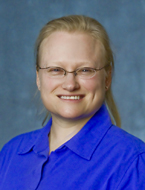The paradox of highly effective sofosbuvir-based combination therapy despite slow viral decline: can we still rely on viral kinetics? Journal Article
Local Library Link: Find It @ Loyola
| Authors: | Nguyen, T. H. T.; Guedj, J; Uprichard, S. L.; Kohli, A.; Kottilil, S.; Perelson, A. S. |
| Article Title: | The paradox of highly effective sofosbuvir-based combination therapy despite slow viral decline: can we still rely on viral kinetics? |
| Abstract: | High sustained virologic response (SVR) rates have been observed after 6 weeks of anti-HCV treatment using sofosbuvir, ledipasvir and a non-nucleoside polymerase-inhibitor (GS-9669) or a protease-inhibitor (GS-9451) and after 12 weeks with sofosbuvir + ledipasvir. Here we analyze the viral kinetics observed during these treatments to decipher the origin of the rapid cure and to evaluate the possibility of further reducing treatment duration. We found that viral kinetics were surprisingly slow in all treatment groups and could not reproduce the high SVR rates observed. Based on experimental results suggesting that NS5A- or protease-inhibitors can generate non-infectious virus, we incorporated this effect into a mathematical model. We found that to predict observed SVR rates it was necessary to assume that ledipasvir, GS-9669 and GS-9451 rapidly reduce virus infectivity. We predicted with this model that 4 weeks of triple therapy could be sufficient to achieve SVR in patients with undetectable viremia at week 1, but would be suboptimal in general. In conclusion, the rapid cure rate achieved with these combinations is largely disconnected from viral loads measured during treatment. A model assuming that rapid cure is due to a drug effect of generating non-infectious virus could be a basis for future response guided therapy. |
| Journal Title: | Scientific reports |
| Volume: | 7 |
| Issue: | 1 |
| ISSN: | 2045-2322; 2045-2322 |
| Publisher: | Unknown |
| Journal Place: | England |
| Date Published: | 2017 |
| Start Page: | 10233 |
| End Page: | 017-09776-z |
| Language: | eng |
| DOI/URL: | |
| Notes: | LR: 20170908; GR: R01 AI028433/AI/NIAID NIH HHS/United States; GR: R01 AI078881/AI/NIAID NIH HHS/United States; GR: R01 AI116868/AI/NIAID NIH HHS/United States; GR: R01 OD011095/OD/NIH HHS/United States; JID: 101563288; 2017/03/27 00:00 [received]; 2017/07/28 00:00 [accepted]; 2017/09/02 06:00 [entrez]; 2017/09/02 06:00 [pubmed]; 2017/09/02 06:00 [medline]; epublish |
LUC Authors
-
 45
45Uprichard
Related LUC Article
